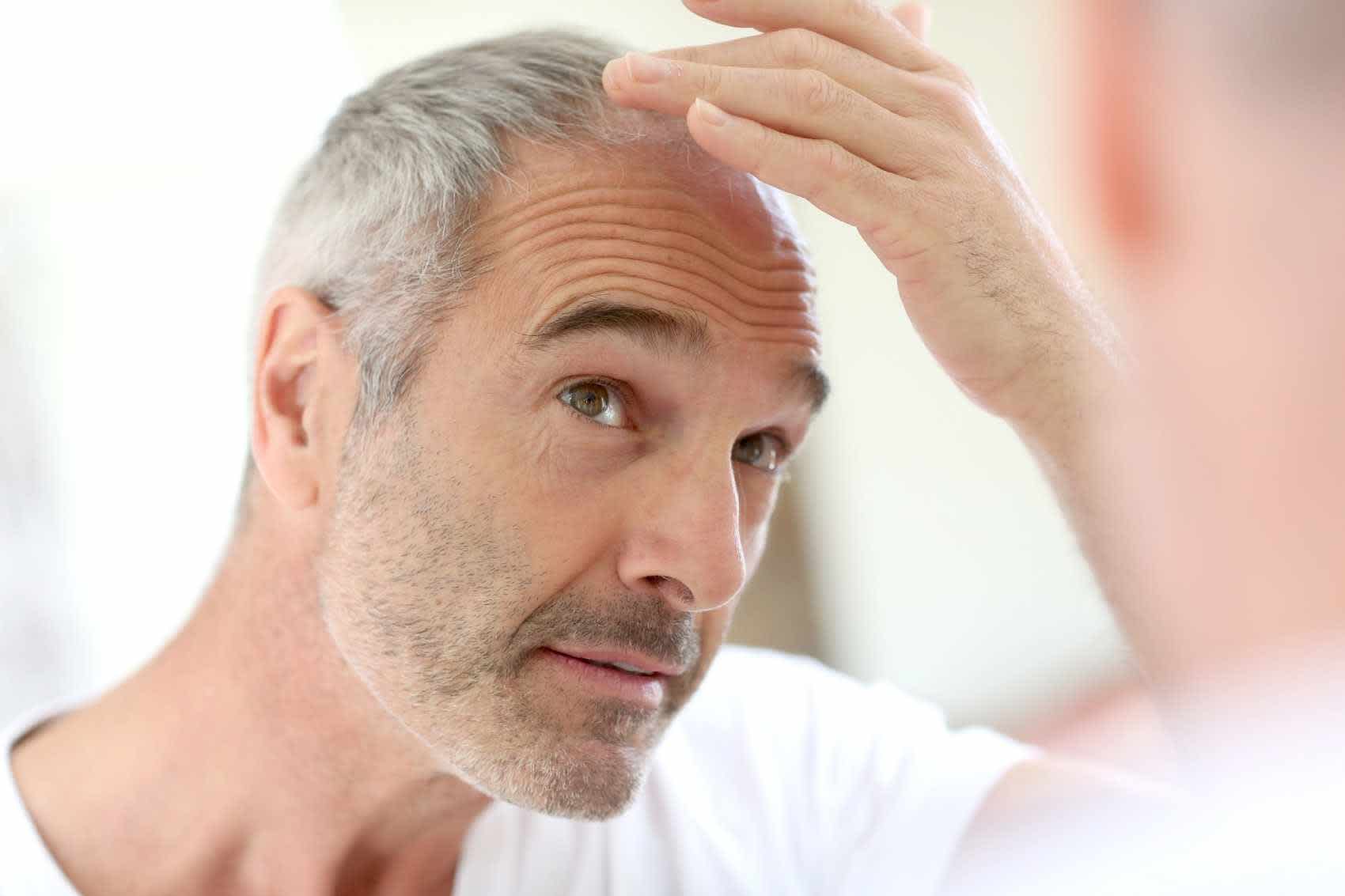
The role of testosterone in hair loss
Medically reviewed on February 15, 2022 by Jordan Stachel, M.S., RDN, CPT. To give you technically accurate, evidence-based information, content published on the Everlywell blog is reviewed by credentialed professionals with expertise in medical and bioscience fields.
Table of contents
- Testosterone and DHT
- Understanding male pattern baldness
- Does high testosterone equate to male hair loss?
- Related content
Testosterone plays an integral role in numerous aspects of overall health and well-being. While it is perhaps best known for supporting sex drive and sperm quality, testosterone is involved in everything from bone mass to muscle growth. However, many men believe that their hair loss may be caused by an excess of testosterone. Learn more about the relationship between testosterone and hair growth — and whether you should consider taking a testosterone level test — below.
Testosterone and DHT
Testosterone is the most common and prominent androgen, or male sex hormone1. Testosterone comes in many forms, and much like any hormone, overall health depends on a gentle balance. Too much of any single hormone can contribute to a variety of problems.
Many of the problems that come from testosterone are caused by its alternate form: DHT [1]. Testosterone gets converted into dihydrotestosterone via an enzyme. DHT is considerably more potent than testosterone, and it more often acts on the skin. It can contribute to acne on the face, and it can also act on hair follicles. For hair follicles on the body, DHT actually adds body hair, but on the scalp, high DHT levels can do the opposite, resulting in what we classically know as male pattern baldness.
High levels of DHT can also contribute to problems with prostate1. DHT stimulates the growth of prostate cells. While you need this during puberty and adolescence, the growth of prostate cells in adult men can result in benign prostatic hyperplasia, or an enlarged prostate. In extreme cases, this can potentially result in prostate cancer.
Learn more: Ways to Increase Testosterone Naturally
Understanding male pattern baldness
In reality, male pattern baldness. is caused by a shrinking of hair follicles. Based on the hair’s natural hair cycle, it’s normal for hair to grow, fall out, and then get replaced with new strands. When hair follicles shrink, hair still falls out, but there aren’t any new strands to replace it.
Male pattern baldness typically starts with a receding hairline, known as "front baldness." At the same time, hair loss from the top of the head can occur. Over time, the two balding areas meet, forming a “U” of hair around the sides and back of the head.
Does high testosterone equate to male hair loss?
Not necessarily. The relationship between testosterone and male pattern hair loss is complex. Only a small percentage of testosterone gets converted to DHT, and if you have high DHT levels, you may have more severe health issues that need to be addressed.
The fact is, male pattern hair loss has been observed with both high and low testosterone levels. There are also plenty of men with high testosterone levels who do not go bald or experience hair thinning. The main culprit here may be genetics. Genes may dictate how sensitive hair follicles are to DHT, which may determine propensity for potential hair loss.
While converted forms of testosterone contribute to male pattern baldness, hair loss and high testosterone levels don’t really have much of a link. However, high testosterone and DHT levels can lead to other health issues. If you think that you have high testosterone, consult your healthcare provider or use the Everlywell at-home Testosterone Test kit to determine testosterone levels. If you’re worried about hair thinning or hair loss, it’s worth talking to your healthcare provider and/or your loved ones about that, too.
Related content
Common signs and symptoms of low testosterone
Ashwagandha and testosterone: what to know
Common causes of thinning hair and hair loss—and how you can address it
Male pattern baldness: what it is, who it affects, and more
References
1. Testosterone, prostate cancer, and balding: Is there a link? Harvard Health. URL. Accessed February 15, 2022.
